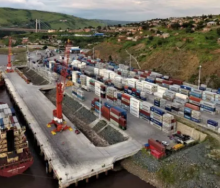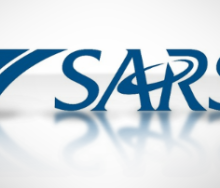Cape Town Mayor Geordin Hill-Lewis has announced the city can now pay businesses, and that it will eventually also pay residential consumers, cash for power fed into the local electricity grid.
This comes after National Treasury exempted the city from competitive bidding processes not designed for the coming energy revolution, Hill-Lewis said.
The sale of excess power by homes and businesses with Small Scale Embedded Generation (SSEGs), among other generation solutions, will contribute to Cape Town’s goal of protecting from up to stage 4 load-shedding within three years.
“The future is now, as we aim to immediately roll out the paying of cash for power. Payments to commercial customers will be possible before June, and within the year for any Capetonian with the necessary city-approved generation capacity. If you're thinking of investing in a solar system, it just got more attractive,” Hill-Lewis said.
“We aim to buy electricity from as many city supplied customers as are willing to sell to us. These customers may now produce as much power as they can from their approved systems and feed it into Cape Town's grid. Under this plan, we will also pay these customers an incentive over and above the Nersa-approved tariff as they help us turn the corner on load-shedding,” he said.
The city’s energy security will grow as the network of home power producers grows.
“This has the potential to be a powerful force to end load-shedding over time, together with our Independent Power Procurement programme, and Power Heroes incentives for voluntary energy savings,” Hill-Lewis said.
The National Energy Regulator of South Africa (Nersa) has approved a rate of 78.98c/kWh for this financial year for the city to pay power sellers. The city will also add a 25c/kWh incentive tariff on top of this.
He said it was focused on ending load-shedding over time, and had steadily been laying the groundwork to enable payment for excess small-scale power, including:
· Dropping a policy requirement for power sellers to be 'net consumers' of energy, which previously only allowed for municipal bills to be credited for excess power, instead of actual cash payments
· Commencing a wheeling trial for commercial and industrial users, which is helping to iron out technical and billing issues ahead of mass-scale rollout. Wheeling is the delivery of energy from a generator to an end-user located in another area through the use of an existing distribution or transmission network.
· Allocating a R15-million budget to pay for energy generated by small-scale embedded generators for the remainder of this financial year until June.
He said SSEG and wheeling customers who want to feed energy into the grid need to have their systems approved and have an Advanced Metering Infrastructure meter installed by the city. This is a bidirectional meter that allows accurate reporting of the amounts of energy consumed and generated.
“We know this meter is still too costly for many, and we are working on finding an alternative option of comparable quality and reliability. Customers who want to upgrade their systems to make use of this existing development need to have the upgrade approved by the city,” he said.
Meanwhile, the DA in the Western Cape is marching to the ANC’s provincial head office in Cape Town today (Wednesday) to voice its opposition to the government’s energy infrastructure and economy, and to demand swift solutions to load-shedding, price hikes and corruption.













